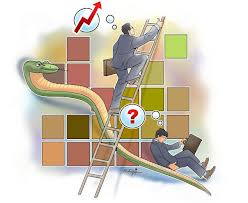Can an entrepreneur be graded? What would the assessment look like? Jason Nazar, the founder of Docstoc, created a 55 question assessment to do just that. He posted it on Forbes yesterday and invited the reader to begin with the end in mind. The questions are listed below:
1. See opportunity where others see issues
2. Have a discipline for making decisions among various opportunity costs
3. Rapidly double down on something when it starts to work and blow it out to its full potential
4. Balance “gut decisions” with of a love of data-driven decisions
6. Stay attached to the problem they are trying to solve, but be flexible in the solutions to solve it
8. Protect their downside and prevent the organization from being put at risk
9. Communicate expectations clearly, build buy-in and hold everyone accountable (most of all themselves)
10. Encourage open feedback on what they can improve
11. Put others in positions to make critical decisions and drive key initiatives forward
12. Prefer to give credit than to take credit
13. Do, or have done, what they ask others to do
14. Remain organized and disciplined in any work habits that affect others
15. Seek out and follow the council of advisors in and outside of the business
16. Balance “Coaching and Cheerleading” vs. “Doing and Directing”
17. Know when to set unrealistic goals
18. Regularly thank and appreciate others for a job well done (thanks to my co-founder Alon Shwartz for reminding me)
19. Make themselves consistently accessible to their team
20. Are honest and ethical in all their dealings
21. At least 20% of their time goes towards recruiting top talent (tip: some say 50% via Vinod Khosla)
22. Build a team of A vs. B players
23. Define the most important qualities for hiring
24. Counter-balance their weaknesses by hiring people better than them
25. Hire Fast & Fire Fast
26. Define what the culture should be
27. Create an ingrained culture, not one of platitudes
28. Make the culture about something bigger than business
29. Build ownership and accountability across the entire organization
30. Put in their own capital before they ask others to put in theirs
31. They sell ether, sell the dream
32. Have mastered the investor pitch process
33. They first sell themself
34. Understand “People, Product, Progress, Passion, Persistence”
35. Always ensure the business is properly capitalized
36. Treat investor’s capital like a borrowed treasure to be protected and returned
37. Know their product better than anyone else
38. Regularly talk with customers to see what can be improved
39. Have a vision for the product that gets translated across the organization
40. Make their product different and better than the competition
41. Build lean products iteratively and ship expeditiously
42. Genuinely care about the interests of the customer more than their personal financial gain
43. Focus on execution over ideas
44. Participate in key sales functions and deals
45. Spend enough time courting key relationships that move the business forward
46. Great at generating PR and buzz for the company
47. Listen more than they talk
48. Stay scrappy as they grow
49. Have a strong sense of demand and how to extract it
50. Self aware, willing to admit mistakes and take responsibility
51. Fierce competitiveness, hate to lose
52. Extreme sense of urgency and intense work ethic
53. Have a big WHY
54. Can sell the dream
55.) Do they get results with integrity? That is the only standard by which entrepreneurs are eventually judged. Everything else is just a test; grades don’t matter, but results do.
What a great and wise summary of what’s most important! When Nazar sums it all up in the phrase “results with integrity,” he eliminates all doubt as to what is really the key driver in successful leaders–be they entrepreneurial, intrapreneurial, or otherwise!





